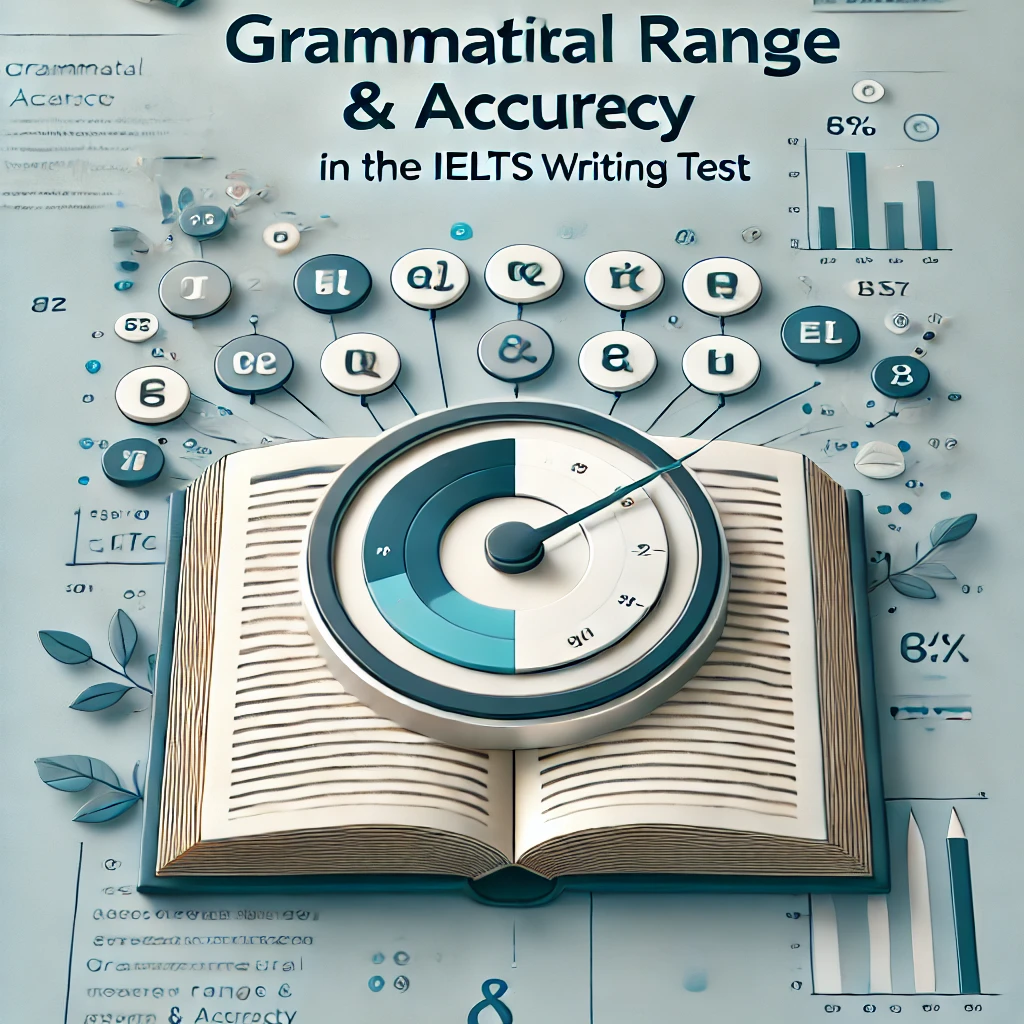
Grammatical Range and Accuracy in the IELTS Test Writings

This article explores the concept of Grammatical Range and Accuracy in the IELTS Academic and General Training Writing tests. It provides insights into what these aspects entail and highlights the key points to consider for achieving the best possible score.
When evaluating a response, examiners assess the variety of grammatical structures used. To achieve a Band 6 or higher, demonstrating a range of sentence types is crucial. Examiners focus on both simple and complex sentences.
Simple sentences consist of only one independent clause, which includes a single subject and a verb or verb phrase.
For example:
- The sun rises in the east.
- She enjoys reading novels.
These sentences can vary in length, ranging from very short to longer forms. In contrast, complex sentences contain one or more additional clauses. This includes a main clause along with one or more subordinate clauses. A dependent clause typically cannot stand alone as a complete sentence.
For Bands 7 and above, incorporating complex structures into your writing is essential. These include advanced sentence formations such as passive constructions, modal verbs, comparative structures, and complex noun phrases.
For example:
1. Passive Constructions
The project was completed ahead of schedule.
The decision has been made by the committee.
The report is being reviewed by the manager.
The house will be renovated next month.
2. Modal Verbs
You should finish your homework before dinner.
They might visit us during the weekend.
The team could win if they work harder.
You must wear a helmet while riding a bike.
3. Comparative Structures
- This car is faster than the one we saw yesterday.
- The new software is more efficient than the old version.
- Her explanation was clearer than his.
This task is as challenging as the previous one.
4. Complex Noun Phrases
- The proposal to reduce waste through recycling initiatives was well-received.
- A strategy for improving customer satisfaction and retention is essential.
- The discovery of water on Mars sparked global interest.
- The failure of the plan to secure funding disappointed the investors.
Grammatical accuracy is another important factor. While sentences should be as accurate as possible, perfection is not mandatory. Errors are expected but may vary in severity. Serious errors, such as those highlighted in yellow, can hinder effective communication and create difficulties for the reader. Similarly, frequent errors, as indicated in pink, can lower the score for this criterion to Band 5.
To achieve Band 7 or higher, occasional errors may still occur, but they should not obstruct communication. At Band 8, examiners also evaluate whether errors are ‘systematic’ or ‘non-systematic.’ Systematic errors are repeated mistakes that indicate a consistent issue with a specific grammatical element, such as incorrect usage of articles (“a,” “an,” or “the”). Non-systematic errors, on the other hand, are sporadic and do not signify a recurring problem. For Band 8, most sentences should be error-free, and any mistakes should be infrequent and non-systematic.
For instance, a sample response with repeated article misuse demonstrates systematic errors. These errors were addressed in the corrected version. Additionally, punctuation plays a significant role. Clear punctuation helps the reader identify where sentences begin and end. Faulty punctuation can disrupt communication and make the response challenging to understand. As with grammar, the type and frequency of punctuation errors are critical.
A sample with frequent grammatical and punctuation mistakes shows how these issues can combine to create difficulty for the reader. Addressing such errors is essential for improving readability and clarity.
To summarize, achieving a high score in Grammatical Range and Accuracy involves mastering the following elements:
- Using a wide variety of appropriate sentence structures.
- Ensuring sentence accuracy.
- Minimizing the frequency and impact of errors.
- Maintaining accurate and appropriate punctuation.
When taking the IELTS Writing test, it is natural to make some mistakes. However, the severity and frequency of these errors significantly influence your score. Therefore, it is crucial to allocate time at the end of the test to review your response and correct any noticeable mistakes.
